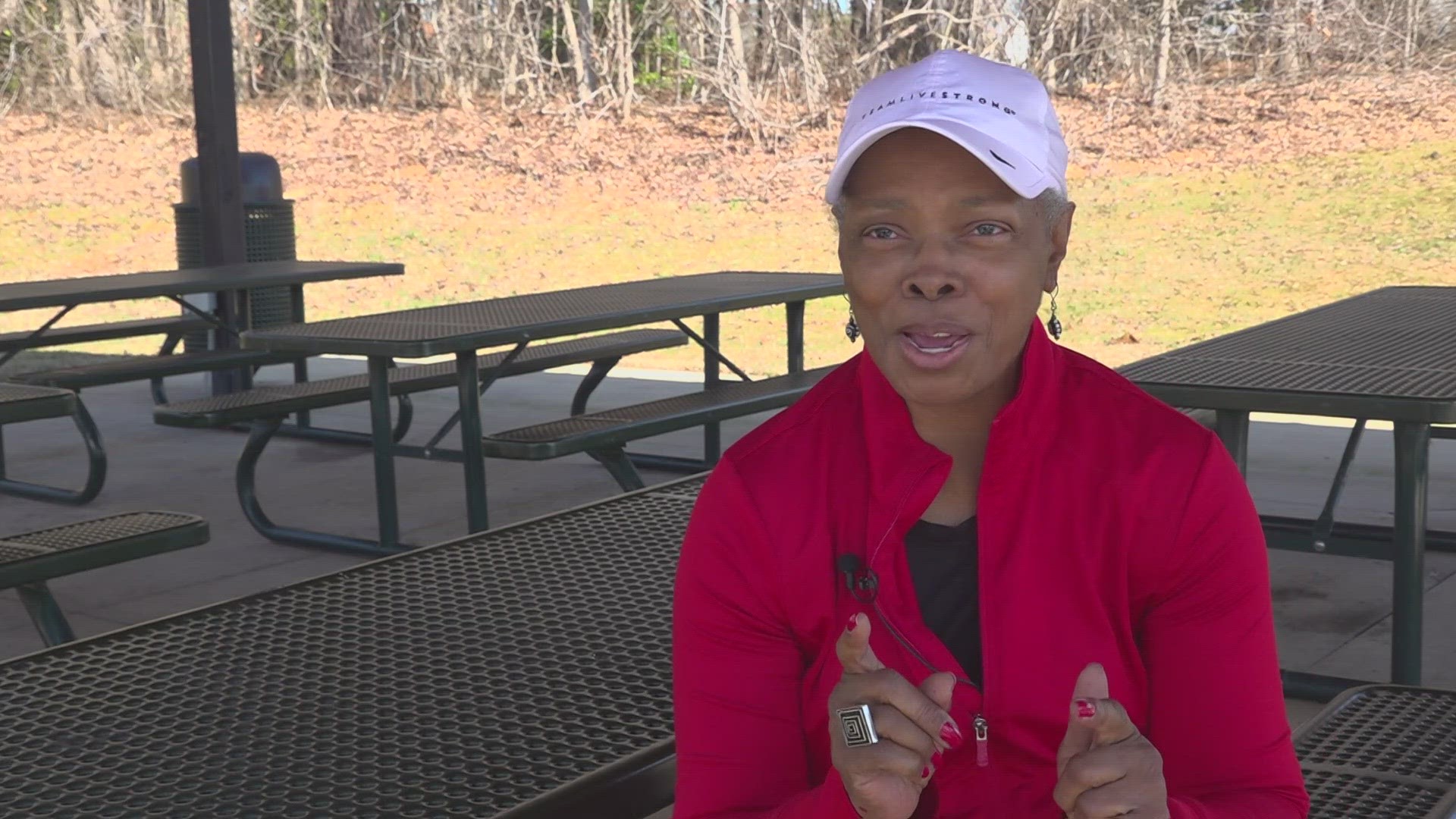GREENSBORO, N.C. — February is American Heart Month and the goal is to raise awareness for the second leading cause of death in the Triad.
Emily Graham said she’ll never forget Sept. 11.
As the country faced an attack, the Greensboro native battled her own adversary.
"They discovered that I had 80% blockage in my left Carotid," Graham said.
She said she’d suffered from arm pain for months — not thinking the pain to be anything serious until it was.
“I got up to use the bathroom and I had this jolt that knocked me to my knees," she said.
Graham was sent to the hospital. Tests revealed she had five blockages in her heart.
She was diagnosed with congestive heart failure and urgently needed heart surgery.
This was after she battled breast cancer a few years prior.
“It turns out with the treatment with the radiation it was creating these blockages with my heart," Graham explained.
Graham’s congestive heart failure diagnosis is an all too familiar one.
The American Heart Association said heart disease is the number one killer in women causing 1 in 3 deaths each year.
The rates are even more alarming among Black women.
“Black women in general the rates of heart disease are higher. If you think about it that one in three, if there are three women around a lot of times Black women is the person we are looking at," Dr. Kardie Tobb, Cone Health Cardiologist said.
The warning signs of a heart attack can look different for women – Dr. Tobb said to keep an eye out for things like:
- chest discomfort
- shortness of breath
- discomfort in the upper body (like arms & back)
Other signs might include nausea, jaw pain, lightheadedness, and a lot of sweating.
Today, Graham said she's not letting her diagnosis stop her in her tracks.
Instead, it's what pushes her to keep walking.
"Being outside is just one of my favorite things when it's not too cold (laughs) but I love it. I love being out in nature. I have girlfriends that I walk with. I think it's one of the best things you can do," Graham continued.
Another tip she said is to listen to your body before it's too late.
"Don't be afraid when you have something going on with your body because you have to be your best friend. Love yourself enough to find out what's going on," she said.
Graham said she is grateful to the American Heart Association for making it possible for her to share her story.

